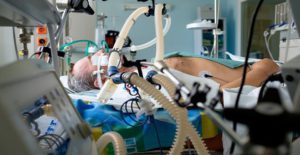Separation Anxiety – Should Treatment be Imposed for Conjoined Twins?

On the BBC News website this week, there is a feature on a pair of conjoined twins from Senegal who are currently living in Wales. They have an extremely rare condition – fused at the lower abdomen they have separate brains, hearts and lungs, but shared liver, bladder and digestive system.
The twins travelled to the UK to access medical treatment and surgery for their condition, however, the BBC reports that there is concern that both twins would not survive the surgery. The heart of one twin (Marieme) is weak, and the worry is that if she is separated she will die. Tragically, if the twins remain conjoined there is a fear that Marieme will still die, and her twin Ndeye will also not survive.
What should happen in this case? The twins’ father, Ibrahima, is, according to reports, struggling with the terrible decision that he faces. It isn’t clear at this stage what he will decide.
But what if he refused surgery? What should happen then?Read More »Separation Anxiety – Should Treatment be Imposed for Conjoined Twins?

